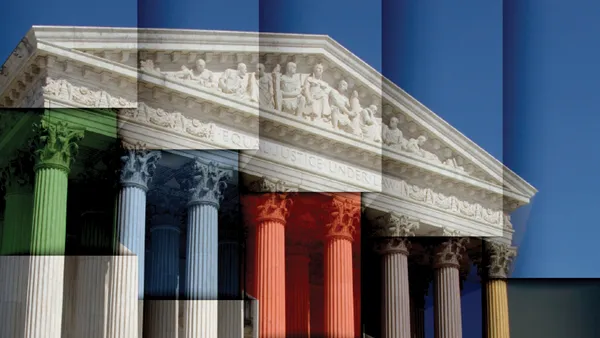Only the government initiates a criminal case, usually through the U.S. attorney’s office, in coordination with a law enforcement agency. Allegations of criminal behavior should be brought to the local police, the FBI, or another appropriate law enforcement agency.
The Judicial Process
Criminal cases differ from civil cases. At the beginning of a federal criminal case, the principal actors are the U.S. Attorney (the prosecutor) and the grand jury. The U.S. Attorney represents the United States in most court proceedings, including all criminal prosecutions. The grand jury reviews evidence presented by the U.S. Attorney and decides whether it is sufficient to require a defendant to stand trial.
Burden of Proof
In a criminal trial, the burden of proof is on the government. Defendants do not have to prove their innocence. Instead, the government must provide evidence to convince the jury of the defendant’s guilt. The standard of proof in a criminal trial gives the prosecutor a much greater burden than the plaintiff in a civil trial. The defendant must be found guilty “beyond a reasonable doubt,” which means the evidence must be so strong that there is no reasonable doubt that the defendant committed the crime.
Pretrial
At an initial appearance, a judge who has reviewed arrest and post-arrest investigation reports, advises the defendant of the charges filed, considers whether the defendant should be held in jail until trial, and determines whether there is probable cause to believe that an offense has been committed and that the defendant has committed it. Defendants who are unable to afford counsel are advised of their right to a court-appointed attorney. Defendants released into the community before trial may be subject to electronic monitoring or drug testing, and required to make periodic reports to a pretrial services officer to ensure appearance at trial.
The defendant enters a plea to the charges brought by the U.S. Attorney at a court hearing known as arraignment. More than 90 percent of defendants plead guilty rather than go to trial. If a defendant pleads guilty in return for the government agreeing to drop certain charges or to recommend a lenient sentence, the agreement often is called a “plea bargain.” If the defendant pleads guilty, the judge may impose a sentence, but more commonly will schedule a later hearing to determine the sentence. In most felony cases the judge waits for the results of a presentence report from the court’s probation office before imposing sentence. If the defendant pleads not guilty, the judge will schedule a trial.
Trial
Criminal cases include limited pretrial discovery proceedings, similar to those in civil cases, but with restrictions to protect the identity of government informants and to prevent intimidation of witnesses. The attorneys also may file motions, which are requests for rulings by the court before the trial, such as to suppress evidence that could violate a defendant’s constitutional rights.
If a defendant is found not guilty, the defendant is released and the government may not appeal. The person may not be charged again for the same offense in a federal court. The Constitution prohibits “double jeopardy,” or being tried twice for the same offense.
Sentencing
If the verdict is guilty, the judge determines the defendant’s sentence. During sentencing, the court may consider U. S. Sentencing Commission guidelines, evidence produced at trial, and also relevant information provided by the pretrial services officer, the U.S. attorney, and the defense attorney.
A sentence may include time in prison, a fine to be paid to the government, and restitution to be paid to crime victims. The court’s probation officers enforce conditions imposed by the court part of a criminal sentence. Supervision of offenders may involve services such as substance abuse testing and treatment programs, job counseling, and alternative detention options, such as home confinement or electronic monitoring.
Understanding the Federal Courts
Want to further develop your knowledge of the federal courts? Read Understanding the Federal Courts.
Separation of Powers
Federal judges offer insights into their thinking about the separation of powers and describe how healthy tensions among the branches have a stabilizing effect on democracy in this five-minute video.

